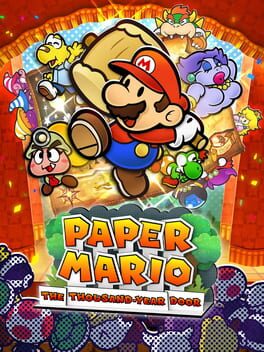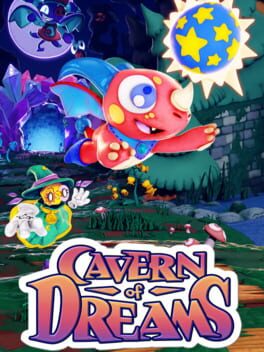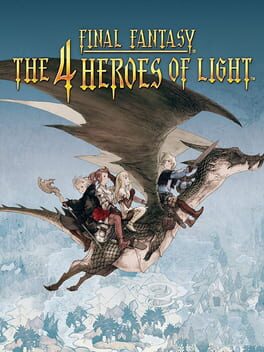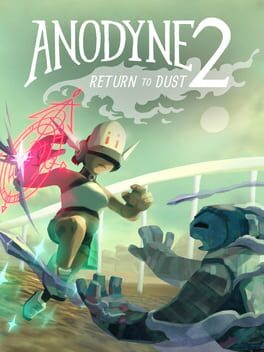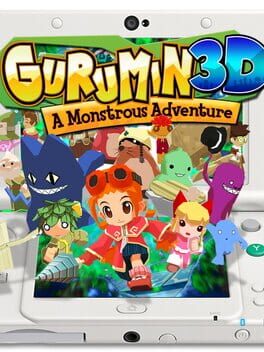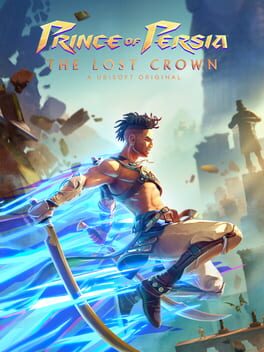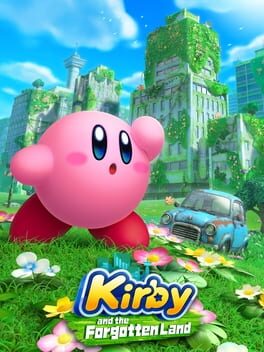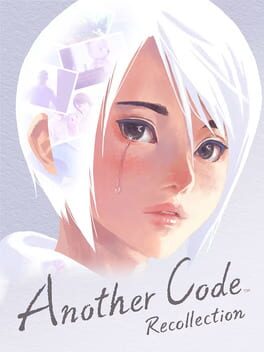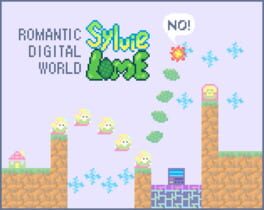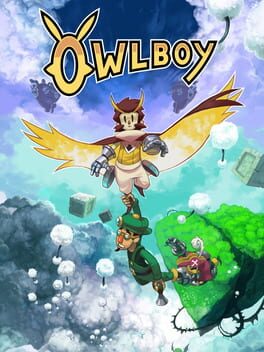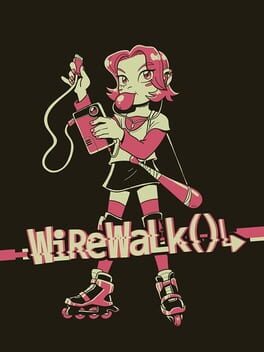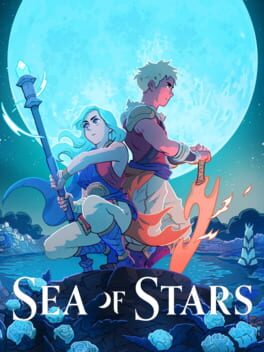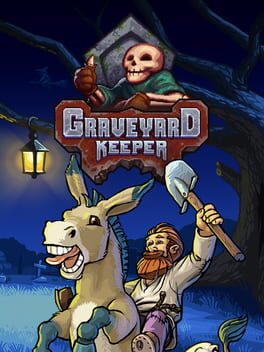humblepopstar
i rented this game one (1) time when it was new and got up to the hooktail boss fight... i remember it, which means i probably enjoyed it, but i had also played superstar saga at that point so it didn't register to me as anything beyond "mario & luigi but on the gamecube." coming back to it, i wasn't already convinced of its specialness.
i think, had i played further as a kid, i would definitely be in the nostalgia-goggles camp about it. it flows tremendously well from act to act, there's always interesting stuff going on, and it's fun to see where the game will toss you next. the difficulty is tuned pretty low so it never feels taxing to play, the aesthetics are incredible. it all just works, and feels very close to seamless.
my issues with it are more that it just feels a bit like a dead end, mechanically speaking; and as such, the game is full of flashy stuff to cover up the repetitive nature of its combat and exploration. yet, improving on that repetition risks taking away the emotional complexities brought out by it. crisscrossing twilight town over and over with vivian in tow makes her feel more like an essential member of the party, and the story needs that to make her addition feel justified. but it also destroys the pacing, and this game needs to move fast in order to keep the player engaged.
this isn't a game where the player participates in the story, it's a game where the story happens peripheral to the player. i am not driving the plot, the plot is driving me. yet rpg mechanics are metaphors for plot and character development, metaphors that the player can control. do you see the problem? the rpg aspects of this game feel vestigial, almost like afterthoughts.
that doesn't mean this is a bad game. i'm enjoying it! there's a lot to love here! but it's just covering its problems with, like, a hundred heaping gravy helpings of charm and style. it actually makes a lot of sense to me that the series would move into an experimental phase after this one; it's quite good but there is basically nothing to iterate on, no path forward with these systems still intact.
i think, had i played further as a kid, i would definitely be in the nostalgia-goggles camp about it. it flows tremendously well from act to act, there's always interesting stuff going on, and it's fun to see where the game will toss you next. the difficulty is tuned pretty low so it never feels taxing to play, the aesthetics are incredible. it all just works, and feels very close to seamless.
my issues with it are more that it just feels a bit like a dead end, mechanically speaking; and as such, the game is full of flashy stuff to cover up the repetitive nature of its combat and exploration. yet, improving on that repetition risks taking away the emotional complexities brought out by it. crisscrossing twilight town over and over with vivian in tow makes her feel more like an essential member of the party, and the story needs that to make her addition feel justified. but it also destroys the pacing, and this game needs to move fast in order to keep the player engaged.
this isn't a game where the player participates in the story, it's a game where the story happens peripheral to the player. i am not driving the plot, the plot is driving me. yet rpg mechanics are metaphors for plot and character development, metaphors that the player can control. do you see the problem? the rpg aspects of this game feel vestigial, almost like afterthoughts.
that doesn't mean this is a bad game. i'm enjoying it! there's a lot to love here! but it's just covering its problems with, like, a hundred heaping gravy helpings of charm and style. it actually makes a lot of sense to me that the series would move into an experimental phase after this one; it's quite good but there is basically nothing to iterate on, no path forward with these systems still intact.
2023
liked but didn't love this. i do love how incidental the level design can feel, and how it plays with scale and shape in some fun ways. it's got some of that anodyne 2 quality, where the level geometry and the moveset allow you to go out of bounds in certain areas, so the game feels like it's on the verge of breaking at all times. it fits the vaguely menacing and surreal tone supplied by the color palette, art style, and sound design - particularly the way the music speeds up or slows down when traveling between areas, such a cool effect.
the challenge is to sustain that tone over the course of a full game, and even though this is a pretty short game i think it sort of falls apart at the end as it starts to lean more fully into the horror elements. not that it ever becomes a horror game, but i think it works best when it has these vaguely unsettling tableaux that communicate story through implication, and that you can move through and contemplate at your own pace. the last areas are more direct in terms of pacing - they're a little less exploratory - and more explicitly designed to evoke panic or anxiety, both in terms of environmental design and mechanical/gameplay design. which is less compelling because it's less subtle; and it feels a little disjointed from the rest of the game, which is focused on slower exploration and puzzle solving. it breaks its own illusion a bit because it starts to feel like you're getting ushered through the setpieces instead of getting to crawl over them, turn them around, look at them from different angles.
but i guess that's sort of the problem with making a finite piece of art like a game. it has to end sometime, and the ending has to feel definitive or worthwhile in some way... allegedly.
the challenge is to sustain that tone over the course of a full game, and even though this is a pretty short game i think it sort of falls apart at the end as it starts to lean more fully into the horror elements. not that it ever becomes a horror game, but i think it works best when it has these vaguely unsettling tableaux that communicate story through implication, and that you can move through and contemplate at your own pace. the last areas are more direct in terms of pacing - they're a little less exploratory - and more explicitly designed to evoke panic or anxiety, both in terms of environmental design and mechanical/gameplay design. which is less compelling because it's less subtle; and it feels a little disjointed from the rest of the game, which is focused on slower exploration and puzzle solving. it breaks its own illusion a bit because it starts to feel like you're getting ushered through the setpieces instead of getting to crawl over them, turn them around, look at them from different angles.
but i guess that's sort of the problem with making a finite piece of art like a game. it has to end sometime, and the ending has to feel definitive or worthwhile in some way... allegedly.
2020
this is good i don't understand why people are so down on it. i get that it feels a little arcane but like... that... is... the point? it's not even that hard! game overs are common but also pretty inconsequential, you just lose a bunch of gems which are not difficult to earn back later.
more to the point, the systems offer a nice amount of flexibility and feel interesting to play with. early in the game i breezed through a dungeon and then got blasted by the boss, so i thought, well, i'll just swap my crowns and see what happens. then i came back and totally destroyed him! it's fun when you can do that. the game encourages you to mess with the crowns and try different party setups to see how you can synergize everything, it's really fun to figure out a party that can slam right on through battles that seemed difficult before.
the story and writing aren't, like, phenomenal, but i think they're meant to work in tandem with the world design and the gameplay. it would be nice to see the characters develop more explicitly in the first half, but i did buy the party's growth when they eventually reunited because i had played as them and tried a lot of different stuff. the character development in rpgs should work as a combination of developer intent and player input, and i think it does so here; having tackled challenging bosses and learned new spells and gotten through some truly ridiculous battles (e.g. i had a random encounter with an enemy who was resistant to my weapon element type but also did hilariously low amounts of damage, so i got into a 50-turn war of attrition), i bought their development into worthy heroes, because /i/ had been developing them into worthy heroes. the game isn't about feeding story to you, it's about giving you the space to construct the story within its guidelines.
it's not perfect. i think a game that's so built around switching classes should actually allow you to switch classes in battle if it's not going to let you run away as a default option. (which is essentially how ffxiii handled the idea, and it's funny that these two games have such different aesthetic/narrative approaches evolving out of similar battle concepts.) and it feels clear that a lot of the mechanics are still experimental/hadn't been totally developed; the ap mechanic throws off the game balance in a couple of ways (making healing items totally useless, for instance), autotargeting isn't too bad but does feel kind of needlessly restrictive, tying spells to held items allows for cool class customization but the inventory is so tiny that it's annoying, etc. but it's an interesting game, and even if it hadn't led directly to the bravely games it would be clear to me that there's something really good here, with a lot to iterate on. it feels generative.
more to the point, the systems offer a nice amount of flexibility and feel interesting to play with. early in the game i breezed through a dungeon and then got blasted by the boss, so i thought, well, i'll just swap my crowns and see what happens. then i came back and totally destroyed him! it's fun when you can do that. the game encourages you to mess with the crowns and try different party setups to see how you can synergize everything, it's really fun to figure out a party that can slam right on through battles that seemed difficult before.
the story and writing aren't, like, phenomenal, but i think they're meant to work in tandem with the world design and the gameplay. it would be nice to see the characters develop more explicitly in the first half, but i did buy the party's growth when they eventually reunited because i had played as them and tried a lot of different stuff. the character development in rpgs should work as a combination of developer intent and player input, and i think it does so here; having tackled challenging bosses and learned new spells and gotten through some truly ridiculous battles (e.g. i had a random encounter with an enemy who was resistant to my weapon element type but also did hilariously low amounts of damage, so i got into a 50-turn war of attrition), i bought their development into worthy heroes, because /i/ had been developing them into worthy heroes. the game isn't about feeding story to you, it's about giving you the space to construct the story within its guidelines.
it's not perfect. i think a game that's so built around switching classes should actually allow you to switch classes in battle if it's not going to let you run away as a default option. (which is essentially how ffxiii handled the idea, and it's funny that these two games have such different aesthetic/narrative approaches evolving out of similar battle concepts.) and it feels clear that a lot of the mechanics are still experimental/hadn't been totally developed; the ap mechanic throws off the game balance in a couple of ways (making healing items totally useless, for instance), autotargeting isn't too bad but does feel kind of needlessly restrictive, tying spells to held items allows for cool class customization but the inventory is so tiny that it's annoying, etc. but it's an interesting game, and even if it hadn't led directly to the bravely games it would be clear to me that there's something really good here, with a lot to iterate on. it feels generative.
it's not as good on a replay as it was the first time through... there are a lot of choices that feel interesting on a first play (the size of the 3d overworlds, the sorta-rhythm-game segments, the obvious lampshaded padding in the second half, the metacommentary) but wear off later on.
BUT! this is probably the most gamey analgesic game (at least until angeline era gets released) and i think it benefits from that. by gamey i mean that it feels super in love with and engaged with the nonsense language of video games; where even the ocean and sephonie really stretch for real world thematic resonance, and the original anodyne is sort of unformed and messy, this one feels like it has a complete and coherent point of view within itself, because of the way its different gameplay styles and aesthetics are stitched together. and that lets it access all kinds of emotional complexities and weird little grace notes. (desertnpc/no such scene is the obvious one, but i was struck this time by a missable npc in pastel horizon who you basically steal life force from. and the overall warmth and sweetness of the new theeland area.)
it's a super imperfect game. but those imperfections also give it a very human quality, and i don't think i would change anything about it.
BUT! this is probably the most gamey analgesic game (at least until angeline era gets released) and i think it benefits from that. by gamey i mean that it feels super in love with and engaged with the nonsense language of video games; where even the ocean and sephonie really stretch for real world thematic resonance, and the original anodyne is sort of unformed and messy, this one feels like it has a complete and coherent point of view within itself, because of the way its different gameplay styles and aesthetics are stitched together. and that lets it access all kinds of emotional complexities and weird little grace notes. (desertnpc/no such scene is the obvious one, but i was struck this time by a missable npc in pastel horizon who you basically steal life force from. and the overall warmth and sweetness of the new theeland area.)
it's a super imperfect game. but those imperfections also give it a very human quality, and i don't think i would change anything about it.
this runs like absolute doodoo caca on the 3ds and feels extremely imprecise. but i also sort of love the chaotic nature of the combat and platforming. like, i'm playing as a child and the whole game may or may not be happening in her imagination - it honestly kind of works that things would feel so weird. not so much that i wouldn't prefer to play it on another platform, but enough that i enjoy my time in the game.
i feel like i can really sense the old-school roots here. the way the homing attack works - where you hurl yourself at enemies, giving up control for a set distance in the air - has a kind of bumpslashy energy to it, so there's an ys connection. the difficulty curve is all over the place. the level construction is challenge-based rather than thematic - here are a bunch of individual rooms, which may or may not have cohesion, each presenting different situations and ideas. there is interesting environmental design, but it usually remains separate from what's happening on a gameplay level; one place in the pimento mountains features structures that look like dwellings, but you can't go in. it's a very game-y construction from the jump, less about being a reality for parin and more about presenting itself to the player.
the lack of connection between the space and the actions you're doing within the space, combined with the imprecision of the actual controls, ends up making the game feel /more/ mysterious and interesting. like you're making the meaning and story on top of what's already there, rather than meaning being something you find within a world that's constructed for you. it's active and collaborative. kind of cool!
i feel like i can really sense the old-school roots here. the way the homing attack works - where you hurl yourself at enemies, giving up control for a set distance in the air - has a kind of bumpslashy energy to it, so there's an ys connection. the difficulty curve is all over the place. the level construction is challenge-based rather than thematic - here are a bunch of individual rooms, which may or may not have cohesion, each presenting different situations and ideas. there is interesting environmental design, but it usually remains separate from what's happening on a gameplay level; one place in the pimento mountains features structures that look like dwellings, but you can't go in. it's a very game-y construction from the jump, less about being a reality for parin and more about presenting itself to the player.
the lack of connection between the space and the actions you're doing within the space, combined with the imprecision of the actual controls, ends up making the game feel /more/ mysterious and interesting. like you're making the meaning and story on top of what's already there, rather than meaning being something you find within a world that's constructed for you. it's active and collaborative. kind of cool!
ok crazy thought here but: i think metroidvanias with a combat focus as granular as this one should be about one-half to one-third the size of this one - or they need to be balanced much more carefully. i keep running into regular degular enemies who can teleport across the room, thus allowing me to get in maybe two hits before they disappear, and who have health bars that are way too big, and who chase me across the screen so i have to stop exploring in order to get them out of the way.
perhaps this is a 'get gud' kind of problem! but it's extremely annoying and disincentivizes backtracking or exploration or thoughtful puzzle solving, which the game also wants me to do. so like, what's the end goal here?
the core issue is that, while the game is fun, it doesn't feel like it has a point of view. i can really feel the market calculation here - like, storytelling tropes from the mcu and anime? check! counter-heavy combat - and getting-stalked-by-enemies areas - along the lines of metroid dread? check! exploration/combat/save rhythm from souls? check! time manipulation because that's the prince of persia Thing? check! it just feels vaguely soulless and committee-designed. even when i enjoy the way it plays - which is often! - i just don't feel particularly engaged with it.
this is reading very pessimistic. there are things i like about this game! i think it does a good job of selling mount qaf as a coherent space - comparatively, metroid dread did not do this with planet zdr even a little bit. i like the concept of the combat-focused vania and there are lots of good ideas there. some of the cutscene direction is cool and fun. but it all feels very... focus-tested.
perhaps this is a 'get gud' kind of problem! but it's extremely annoying and disincentivizes backtracking or exploration or thoughtful puzzle solving, which the game also wants me to do. so like, what's the end goal here?
the core issue is that, while the game is fun, it doesn't feel like it has a point of view. i can really feel the market calculation here - like, storytelling tropes from the mcu and anime? check! counter-heavy combat - and getting-stalked-by-enemies areas - along the lines of metroid dread? check! exploration/combat/save rhythm from souls? check! time manipulation because that's the prince of persia Thing? check! it just feels vaguely soulless and committee-designed. even when i enjoy the way it plays - which is often! - i just don't feel particularly engaged with it.
this is reading very pessimistic. there are things i like about this game! i think it does a good job of selling mount qaf as a coherent space - comparatively, metroid dread did not do this with planet zdr even a little bit. i like the concept of the combat-focused vania and there are lots of good ideas there. some of the cutscene direction is cool and fun. but it all feels very... focus-tested.
i wasn't really sure how much i liked this and then, when i got to the bonus levels, i realized that i was disappointed that there weren't more. so yes i did like it!
i do feel like there's a little bit less to the game than there appears to be on first glance - the world map is pretty but kind of empty, the side content in waddle dee town is either not spaced out well or is pretty skimpy (or both), and there are so few actual levels. but those levels are so joyful and fun, so it evens out.
and there's a sense of excitement here - last level is the most obvious example, but it really feels like the devs are having fun with the contrasting tones of cute-kirby and apocalyptic-environment. it's got some real kingdom heartsy klonoaness going on, being very approachable but still a video game-ass video game at heart. good stuff.
i do feel like there's a little bit less to the game than there appears to be on first glance - the world map is pretty but kind of empty, the side content in waddle dee town is either not spaced out well or is pretty skimpy (or both), and there are so few actual levels. but those levels are so joyful and fun, so it evens out.
and there's a sense of excitement here - last level is the most obvious example, but it really feels like the devs are having fun with the contrasting tones of cute-kirby and apocalyptic-environment. it's got some real kingdom heartsy klonoaness going on, being very approachable but still a video game-ass video game at heart. good stuff.
2022
2016
i mean, this is definitely a Vibes-Based Game. the production values on this thing are absolutely unbelievable - it's not just about how detailed the graphics are, but how the textures work in tandem with the color palette work in tandem with the instrumental choices in the score. it's really rich, sumptuous stuff, and it goes a long way towards selling this game world as a place.
i feel like this game carves out the gradation between "side-scrolling zelda" and "metroidvania," because while those terms tend to be used interchangeably, they actually connote different things - a metroidvania will have a singular coherent space, where a zelda (in the ocarina/lttp mold) has distinct areas connected together. owlboy is more of the latter than the former, so while it looks like metroid it feels like link to the past. i think this is actually a very cool idea, and i like that the game explores a lot of different tones in its dungeon crawling. the side-on view makes dungeon layouts feel a lot more obscure, so you really get the sense of these spaces as mysterious and dangerous, and the game's focus on player disempowerment via the partner system and its setpieces combines with that very convincingly. it ties back into the story, too, and i think the overall writing and design coherence here is really strong...
...except when it comes to the actual, played experience. it just doesn't feel that great to control. it's not horrible - and lord knows that metroidvanias (which i know i just said this game isn't, but it is related, and these terms are imprecise and genre isn't real anyway) tend to suffer from overburdened control schemes. but it definitely feels compromised. shooting with geddy, for instance, feels like a twin-stick shooter; that's fine. move with the left stick or d-pad, aim with the right stick, fire with the right trigger. the issue is that holding the right trigger fires more slowly than pressing it repeatedly, while both otus and the bullets geddy fires also move very slowly. so it encourages you to press the trigger repeatedly in order to keep up with fast moving enemies, while nudging the stick with your thumb, and it started to physically hurt my hands during intense fights.
there's a lot of stuff like this in the game, just little areas where it's clear that there wasn't quite enough polish or time spent on how it feels to play. the focus here was clearly on thematic consistency, written and environmental storytelling, and production values. that's fine. i wouldn't say this is a classic, but i think it's pretty solid.
i feel like this game carves out the gradation between "side-scrolling zelda" and "metroidvania," because while those terms tend to be used interchangeably, they actually connote different things - a metroidvania will have a singular coherent space, where a zelda (in the ocarina/lttp mold) has distinct areas connected together. owlboy is more of the latter than the former, so while it looks like metroid it feels like link to the past. i think this is actually a very cool idea, and i like that the game explores a lot of different tones in its dungeon crawling. the side-on view makes dungeon layouts feel a lot more obscure, so you really get the sense of these spaces as mysterious and dangerous, and the game's focus on player disempowerment via the partner system and its setpieces combines with that very convincingly. it ties back into the story, too, and i think the overall writing and design coherence here is really strong...
...except when it comes to the actual, played experience. it just doesn't feel that great to control. it's not horrible - and lord knows that metroidvanias (which i know i just said this game isn't, but it is related, and these terms are imprecise and genre isn't real anyway) tend to suffer from overburdened control schemes. but it definitely feels compromised. shooting with geddy, for instance, feels like a twin-stick shooter; that's fine. move with the left stick or d-pad, aim with the right stick, fire with the right trigger. the issue is that holding the right trigger fires more slowly than pressing it repeatedly, while both otus and the bullets geddy fires also move very slowly. so it encourages you to press the trigger repeatedly in order to keep up with fast moving enemies, while nudging the stick with your thumb, and it started to physically hurt my hands during intense fights.
there's a lot of stuff like this in the game, just little areas where it's clear that there wasn't quite enough polish or time spent on how it feels to play. the focus here was clearly on thematic consistency, written and environmental storytelling, and production values. that's fine. i wouldn't say this is a classic, but i think it's pretty solid.
look it's fine. it's less a game than it is a theme park ride but it's fine and cute idk, it just makes me feel so smooth-brained.
i like the badge challenges because they're focused platforming levels with interesting abilities instead of spectacle autoscrolls. i like the special world stages because they're spectacle autoscrolls but with actual friction.
it feels like they couldn't quite decide whether to make this game hard or easy and just went eh it'll be both and the difficulty curve will be nonexistent who cares? well guess what nintendo, i care!!!! i feel like the point of the level progression platformer is to create a narrative of improvement and mastery but this feels more like a toybox with flashy effects, kind of the breath of the wild/new horizons ethos applied to 2d mario in that it looks great but betrays little developer intent. or more accurately the intent is to be everything to everyone.
i like the badge challenges because they're focused platforming levels with interesting abilities instead of spectacle autoscrolls. i like the special world stages because they're spectacle autoscrolls but with actual friction.
it feels like they couldn't quite decide whether to make this game hard or easy and just went eh it'll be both and the difficulty curve will be nonexistent who cares? well guess what nintendo, i care!!!! i feel like the point of the level progression platformer is to create a narrative of improvement and mastery but this feels more like a toybox with flashy effects, kind of the breath of the wild/new horizons ethos applied to 2d mario in that it looks great but betrays little developer intent. or more accurately the intent is to be everything to everyone.
2021
an extremely charming and witty bite-sized zeldalike. its final third feels a bit rushed - the last dungeon is noticeably shorter and simpler than the prior ones, the story's conclusion isn't built up enough, and the last boss fight could've used a little more work - but the game's charm makes those issues feel minor. at its best (the first two dungeons) it feels like a very smart, thought-out experience. and it can be beaten in a day!
2023
had the same experience here as i did with okami: this is a game that designed around its style first. the team has said that it was built to be how we remember the old jrpgs, not as they actually were; in practice this means the thing that is prioritized is the setpiece, the spectacle, the feeling, over the things that might lend the game internal coherence, like story and character.
that's not to say it's bad! style-first is a totally valid way to build a game, and it can work; games are audiovisual experiences. but the games that it's recalling are primarily remembered for their stories and characters - chrono trigger's narrative is rich and beloved, super mario rpg's characters are vividly drawn, golden sun's worldbuilding is beautiful and detailed. sea of stars' writing is just.... so bad, so empty. characters make dramatic pronouncements and never follow through; there's no payoff for the main conflict. (in the standard ending, anyway. i'm not going back to get the true ending. i shouldn't have to.) zale and valere get it the worst: they have the same bland personality, the same odd subservience to the needs of the plot (such as it is). they have no interiority at all. what do they really think about all this? about their lost childhoods? about their relationship to each other, and to their party members? we will never know; they are only surface-level. much like the rest of the game.
that's not to say it's bad! style-first is a totally valid way to build a game, and it can work; games are audiovisual experiences. but the games that it's recalling are primarily remembered for their stories and characters - chrono trigger's narrative is rich and beloved, super mario rpg's characters are vividly drawn, golden sun's worldbuilding is beautiful and detailed. sea of stars' writing is just.... so bad, so empty. characters make dramatic pronouncements and never follow through; there's no payoff for the main conflict. (in the standard ending, anyway. i'm not going back to get the true ending. i shouldn't have to.) zale and valere get it the worst: they have the same bland personality, the same odd subservience to the needs of the plot (such as it is). they have no interiority at all. what do they really think about all this? about their lost childhoods? about their relationship to each other, and to their party members? we will never know; they are only surface-level. much like the rest of the game.
2018
yeah i didn't like this. i played the version with all the dlc included, and i wonder if the base game is more focused/less overwhelming. as it is, there was just too much stuff - too many mechanics, too many skill trees, too many questlines. it's like having a bunch of push notifications shoved in your face. it feels good to make the numbers go up but that's all it really is.
for a game that is nominally "about the spirit of capitalism" it kind of has nothing to say about capitalism; it just recreates capitalist incentive structures.
for a game that is nominally "about the spirit of capitalism" it kind of has nothing to say about capitalism; it just recreates capitalist incentive structures.
